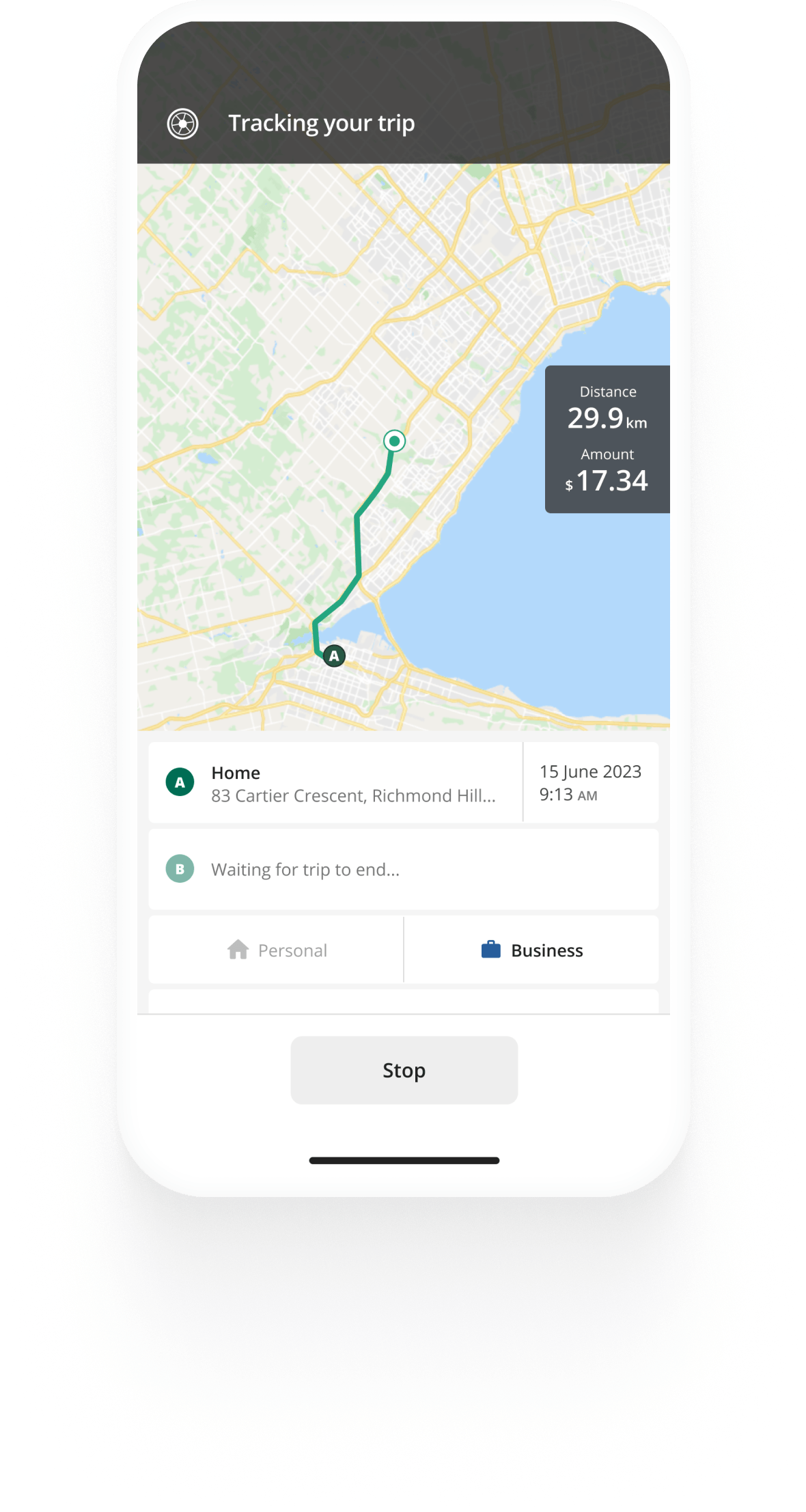Track mileage automatically
Get started.svg)
Personal Use of Company Cars - Is It a Taxable Benefit?
As an employee in Canada, you may have the opportunity to use company cars for personal reasons. Many employers allow personal use of company cars, which is often regarded as an appealing employment perk.
Still, it is important you understand the CRA regulations that distinguish between personal and business use of company vehicles and what that might mean for you.
Personal driving of company vehicles - a taxable benefit
Any travel with a company vehicle for purposes not related to your employment is considered personal use. Personal driving includes but is not limited to your work commute, driving family and friends around or running personal errands, using the company vehicle to go on vacations, or having to take the company car home if you’re on call.
All personal driving of company vehicles is considered a taxable benefit that will be included in your income and taxed as such.


Track business driving with ease
Trusted by millions of drivers
Automate your logbook Automate your logbook

Automatic mileage tracking and CRA-compliant reporting.
Get started for free Get started for freeKeeping records of the personal use of company cars
You will need to keep records of your usage of the company car, in order to calculate your business and personal kilometres. Having clear records of your driving will help you substantiate your business driving to your employer and exclude these kilometres from being taxable, while your employer will be able to correctly report any personal use as a taxable benefit.
The easiest way to track your company car driving is to use an app like Driversnote. Our mileage tracker app will automatically record your mileage. Driversnote also makes it easy to manage and categorize your trips as business or personal.
Find out how to keep CRA-compliant logbooks of your business and personal driving.
Calculating vehicle taxable benefit
The taxable benefit for using a company vehicle that meets the CRA definition of an automobile for personal driving is calculated as follows:
- The standby charge for a year + the operating cost benefit;
- Take out any reimbursements you have made to your employer for the standby charge or operating costs.
The CRA has a calculator you can use to estimate the benefits of using a company car for personal use.
Understand operating costs and standby charges
Operating cost
Employers normally cover all operating expenses of a company vehicle. However, if you use that vehicle for personal uses, naturally some of these costs won’t be for business purposes. These personal driving costs are considered a taxable benefit. The operating expenses include fuel, oil and maintenance, repairs, licenses, and insurance. The CRA provides a rate per kilometre to cover these costs.
The taxable benefit rate for 2025 is 34 cents per kilometre of personal use of a company car. If you are employed in selling or leasing automobiles, the rate is 31 cents per kilometre.
The taxable benefit rate for 2024 was 33 cents per kilometre of personal use of a company car. If you are employed in selling or leasing automobiles, the rate is 30 cents per kilometre.
Standby charge
The standby charge takes into account company car depreciation. It is calculated based on the purchase cost of the automobile, the number of days in which the company car was available to the employee and, under certain conditions, the extent of the actual personal use of the company car.
You may wonder why the availability of the company car and its personal use are noted separately. According to the CRA, these are two different terms.
- The availability of a company car refers to the time period in which the company car is used by the employee for any part of the day or if the car sits unused in the employee's garage or on the employee's driveway or parking spot. The availability of the company automobile stops when the employee is required to return the car to the employer
- The company car’s personal use, as described above, is any personal kilometres the employee or friends and relatives of the employee travel with the company car.
Reduced standby charge
The reduced standby charge aims to lower the tax impact for employees who use the company car as minimally as possible for personal reasons.
The reduced standby charge can be used if the employee uses the company car for business purposes more than 50% of the time and doesn't exceed 1,667 kilometres per month, and 20,004 kilometres per year, for personal trips.
FAQ

Tired of logging mileage by hand?
Effortless. CRA-compliant. Liberating.
Top posts
Related posts
Travel Expenses for Employees
Latest update: January 16, 2026 - 2 min read
Need to know how to receive travelling expenses reimbursement from your employer? Learn about CRA travel expenses and if they are taxable as part of your income.
Car Allowances for Employees in Canada
Latest update: January 16, 2026 - 2 min read
Learn everything about car allowances for employees in Canada in 2026 - see if your car allowance will be taxed and what you can use it for.
How to Claim Mileage on Taxes
Latest update: January 16, 2026 - 5 min read
Employees and self-employed may claim mileage and reduce their taxes when using a vehicle for business. Methods and forms explained.

.svg)
